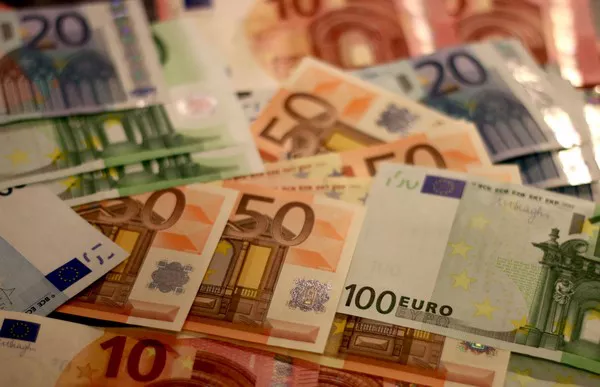The US dollar and the euro are two of the world’s most popular currencies, widely used in international trade and finance. However, there has been much debate regarding which currency is stronger. In this article, we will take an in-depth look at the factors that influence the strength of these currencies and examine whether the dollar is indeed stronger than the euro.
Factors Affecting Currency Strength
There are numerous factors that can impact a currency’s strength, including:
- Economic Growth: Countries with strong economic growth tend to have stronger currencies as their goods and services are in high demand.
- Interest Rates: Higher interest rates attract foreign investment, increasing demand for a country’s currency and strengthening it.
- Inflation: High inflation erodes purchasing power, leading to a weaker currency.
- Political Stability: Countries with stable political environments are viewed as safe havens for investment, boosting demand for their currency.
- Trade Balance: A country with a trade surplus tends to have a stronger currency as they export more than they import, resulting in a higher demand for their currency.
- Central Bank Policy: The policies of a country’s central bank can also significantly affect the strength of its currency.
Now that we’ve established the factors that impact currency strength, let’s take a closer look at the US dollar and the euro.
US Dollar vs. Euro
The US dollar is the world’s primary reserve currency, accounting for approximately 61% of global foreign exchange reserves. In contrast, the euro accounts for only around 20% of global reserves. This suggests that the US dollar is perceived as a stronger currency by investors and central banks worldwide.
One factor contributing to the US dollar’s strength is the relatively strong US economy. The US has seen significant economic growth in recent years, with low unemployment rates and robust GDP figures. While the COVID-19 pandemic has impacted the US economy, it remains a dominant player in global trade and finance.
Another factor that contributes to the dollar’s strength is the policy of the Federal Reserve (Fed), the US central bank. The Fed plays a critical role in managing the US economy by setting interest rates and implementing monetary policies. In recent years, the Fed has taken steps to increase interest rates, drawing foreign investment and strengthening the dollar.
On the other hand, the euro has faced numerous challenges over the years, including the debt crisis in several European countries. This crisis led to economic instability and decreased investor confidence in the euro. Additionally, the European Central Bank has historically maintained lower interest rates than the Fed, making the euro less attractive to investors seeking higher returns.
However, despite these challenges, the euro has seen some significant gains in recent years. In 2020, the euro rose nearly 8% against the US dollar, reflecting growing confidence in the European economy. One factor contributing to this growth was the EU’s coronavirus recovery plan, which provided much-needed financial support to member states.
Moreover, the eurozone enjoyed a trade surplus in the early part of 2021, driven by increased demand for European exports. This surplus may further boost the euro’s strength in the coming months.
Conclusion
In conclusion, while the US dollar has historically been viewed as a stronger currency, recent trends suggest that the euro is gaining ground. Factors such as the EU’s coronavirus recovery plan and its trade surplus have contributed to the euro’s recent growth. However, the US economic recovery and the Fed’s policies continue to make the dollar an attractive investment option.
Ultimately, determining which currency is stronger can be challenging, as it depends on a host of factors that are constantly evolving. Investors and traders must stay up-to-date on economic news and market trends to make informed decisions about currency investments.


